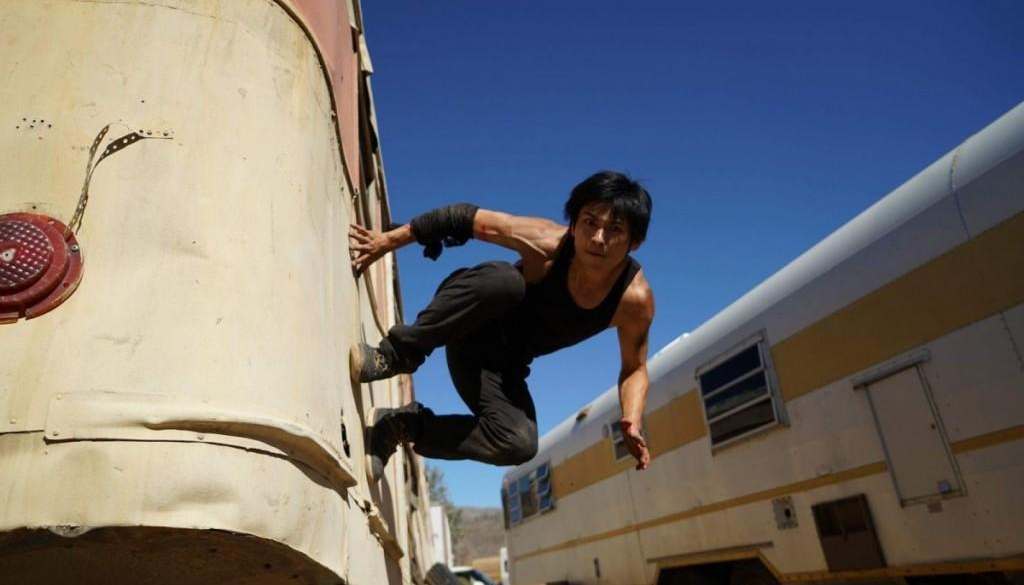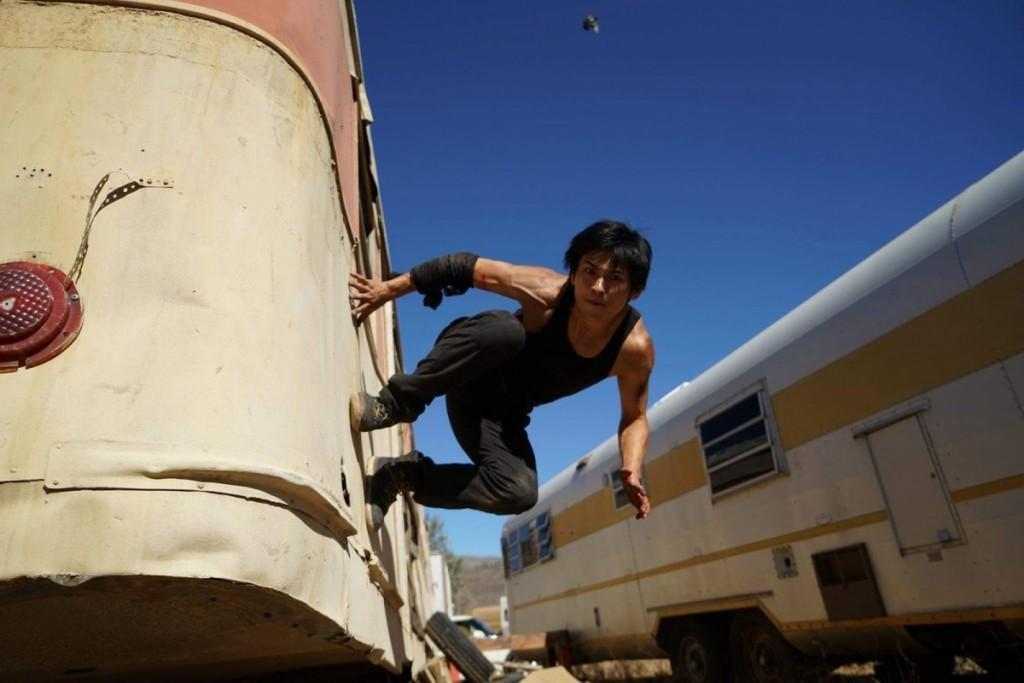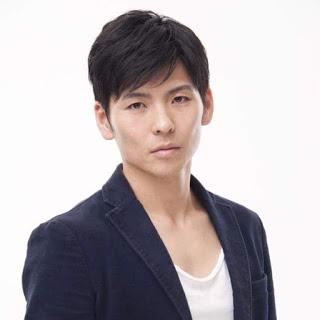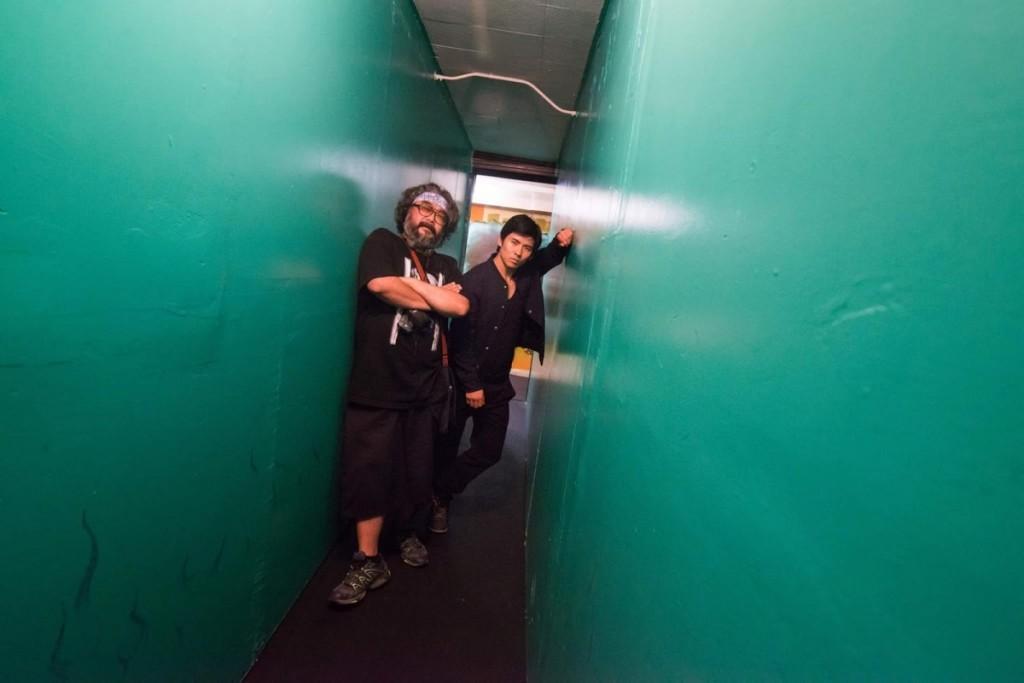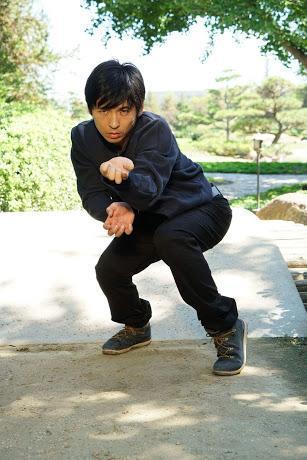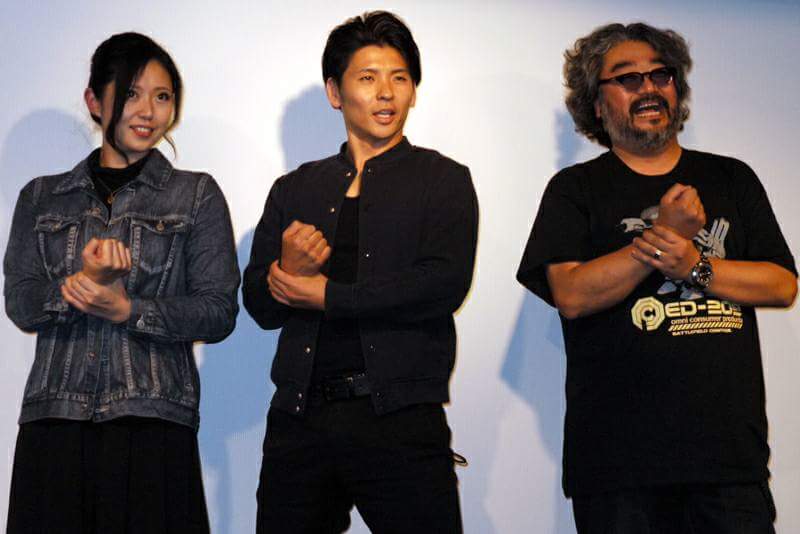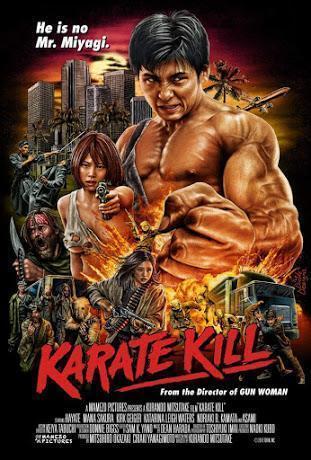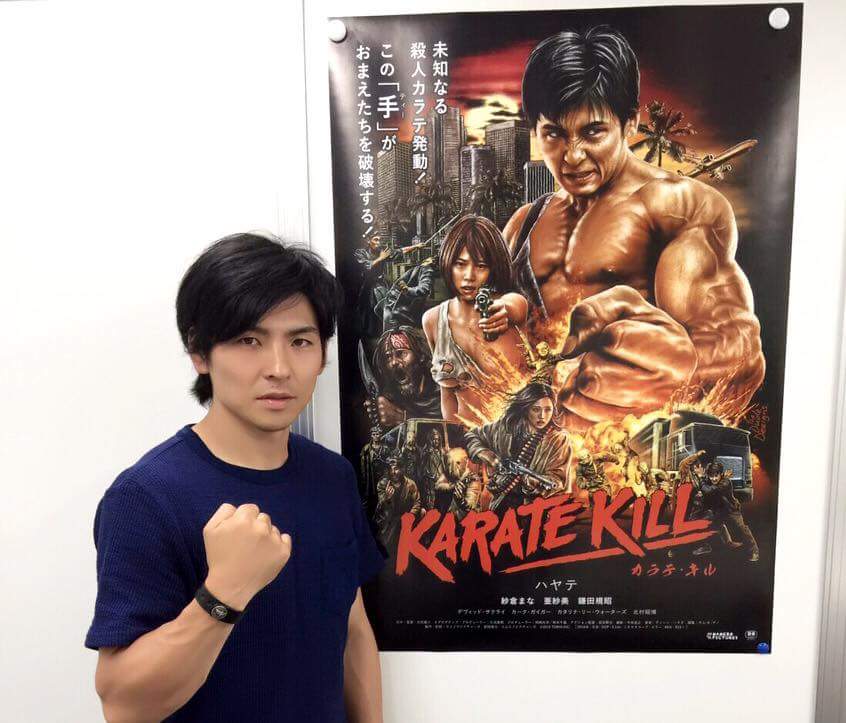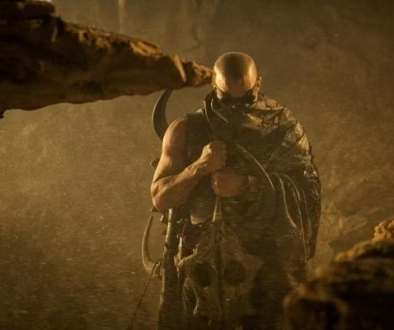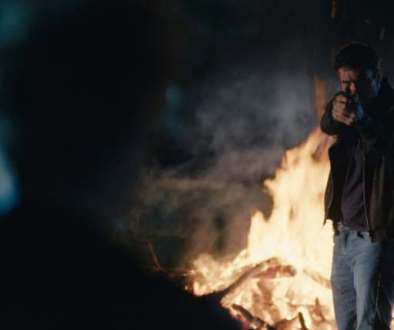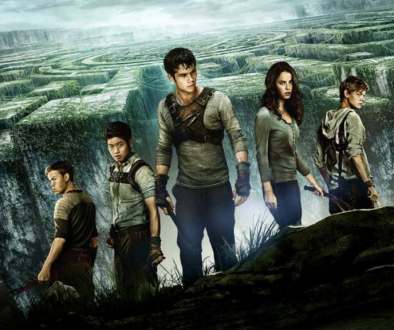KICKIN’ IT ‘KORYU’: An Interview With KARATE KILL Star, Actor And Martial Artist, Hayate
My own understanding and comprehension of Karate dates as far back as the mid-1990s. I always knew there were different forms while the only version I had ever studied was Shotokan, one I commonly heard of. I don’t practice it as much these days – point in fact I haven’t worn a gi since life took over in 1998 and my old karate school dissolved. Sobering times.
Nowadays I’m certain my old sensei is still somewhere in my neck of the woods doing what he does, as maybe a few of my old classmates. Moreover, Karate is still something I can relate to as a sport, and even as a watchable style in action cinema; Two of the most fun examples of this, aside from the Karate Kid trilogy, obviously, are several titles that took up a great portion of my time since I began immersing myself in Asian cinema a bit more around 2002: Yang Yun-Ho’s Fighter In The Wind, and Nagasaki Shunichi’s 2007 cult hit, Kuro Obi.
Both films ascertain a certain look in the action choreography that bodes a sense of organic delivery and hardness in technique and movement, coupled with just a little stylish flair, the element of spontaneity and survival instincts that incur with fighting. It’s what I love about both feature-length titles and I have seldom come across a filmmaker that can achieve that same effect, save for the likes of Vlad Rimburg and Juan Bofill with some of their shortform projects.
I say seldom, only because it’s not until this year that seemingly another director came ready to take on the challenge of harnessing some of the best one could out of shooting Karate for cinema. Leave it to Mitsutake Kurando, who in the wake of earning festival craze and approval with actress Asami in Gun Woman, sought best to keep the momentum going with a film that gels fantastically with its star and the vision it embraces.
Their latest film, Karate Kill, releases in the U.S. on DVD and Blu-Ray on July 18 from Petri Entertainment’s Dark Cuts shingle, and after watching it for myself, I honestly feel like we have another brewing new talent in our midst who can mingle well with the current crop of action stars today, provided the right people help steer his career. You can read more of my gushing in this review, or Joey Min’s review here for some counterpoint, but as far as I’m concerned and in my humble opinion, Hayate has proven himself in a worthy screen debut, and Mitsutake brings out some of the best that action fans could expect from a movie of this caliber.
My enthusiasm for Hayate’s career runs high with Karate Kill as a starting point, and I couldn’t be more thankful to share it by presenting Hayate in our new interview with special thanks no less to producer Yanagimoto Chiaki for quarterbacking me in the past several months. Martial arts aficionados may gather as much why I chose the title I did for this interview with respect to its phrasing and I think it’s a cool title with regard to the context if you get it. Or Google it if need be ?
Without further ado, here is our interview with Hayate:
Film Combat Syndicate: Hello Hayate, and thank you so much for agreeing to this interview! How have the past few years been for you up until this point?
Hayate: From the casting through all the way up to now, KARATE KILL has been my main focus for the past few years, and the heat hasn’t cooled off yet.
FCSyndicate: Please tell us about yourself, and how you got started in movies?
H: Originally, I just wanted to master karate. I’ve been training karate for years, and on the side I teach karate too. As part of the training for karate, I started parkour. Then I started getting offers to perform parkour for videos and films.
I wanted to improve my performance of action scenes, so I started to study acting. I discovered how complex and how fun it is to act, and that’s how I got started in movies.
FCSyndicate: Can you share some movies or the names of filmmakers or stars that have influenced you over the years?
H: Before I started the production of KARATE KILL, I watched many films starring Clint Eastwood. He’s inspiring, and having that cool presence without doing or saying too much is one of my goals.
Other than that, some of the actors in particular films that influenced me are Anthony Hopkins from The Silence of the Lambs and Heath Ledger from The Dark Knight. There are so many inspiring films and actors. It’s hard to pick.
H: Several years ago, I went to Yubari Film Festival and shared a room with producer Mr. Kubo (who is EP of KARATE KILL). We hit it off and he told me he wanted to make a film with me as a star. The director Kurando Mitsutake was also in Yubari for the festival (for his previous film GUN WOMAN). Producer Kubo watched Mitsutake’s film at the festival, and he thought it would be a cool idea to pair me up with Mitsutake.
Mitsutake and I met at the festival too but we only said “hi” to each other at that time.
FCSyndicate: Were you at all nervous for your first major role in a film?
H: I didn’t feel nervous at all. All I had was a sense of responsibility, determination, and confidence that we will make something very, very cool.
FCSyndicate: I think fans will especially be blown away by the martial arts style you exhibit in the choreography. I even shared my thoughts with your producer about how unique it looked on screen. Tell us about the style you train in.
H: The martial arts you see in the film is Koryu Karate (“traditional school” karate) that I actually train in that’s been slightly rearranged for a movie.
In the real world, it’s even more simple and the moves are more compact. Hitting vital parts and one-hit-one-kill attacks are the norm.
When we practice, we attack each other without protective gears. So sometimes we injure ourselves, like a tooth would pierce through skin, or part of the ear would be ripped off. So some of the scenes in the film are based on true story, .
H: I used to play baseball when I was little. That was my sport. When I stopped playing, my big brother introduced me to karate. He told me that after a few years of training, I would be strong and would never lose in fights.
But to me, martial arts turned out to be more complex and difficult than it seemed. It’s been about 20 years since I started it, but I feel I’m still far from being strong.
H: I’m happy to hear you enjoyed the action of this film!
The fundamentals of most of the action sequences were created by our action director/choreographer Keiya Tabuchi. Then I brushed it up by infusing my karate style into it.
For the free running scenes, I led the choreography (because of my background) but discussed a lot with Tabuchi along the way.
The action director Tabuchi was extremely sincere and dedicated towards the film. In order to understand my rather unique style of karate, he joined my karate training for days and studied my karate firsthand. Because of that dedication, the fundamentals of all his action choreography made total sense. So it felt very natural to me. We were blessed to have him.
H: I really have great memories in every action scene, and each scene brings back memories of awesome actors I got to perform with.
The fight scene at the hostess club required high level of physical ability, and all the actors you see in that fight are our super-capable stunt team.
The scene with Mr. Kamata (Noriaki Kamata playing Club Manager) involved an action that was more acting-oriented, like a catch.
As a karate martial artist, I really like the scene with the swordsman. That scene was also a fight between a swords action created by Tabuchi, and my techniques.
Tabuchi had studied karate diligently. So he would try to find a spot left open to attack me (as Kenji), but then I would fight back, and he would again try to find a spot to attack… That’s how we created choreography in that scene, and I had such a great time with him. And David Sakurai (playing Samurai Swordsman) did a fantastic job making that scene come alive.
A little bit of behind-the-scene episode… when we shot that trailer scene, we encountered several troubles on set so the actual time we spent shooting that scene was about three hours. And on top of that, the sword we used for the action was a steel katana sword (which was reserved for a hero look). The entire cast and crew were extremely focused, and I felt everybody became one, which was great.
Also I want to point out — I don’t believe there are a lot of actors out there who can handle the attacks by a steel sword without much practice ?
H: This was my first time working with Asami. I’m a shy guy, typical to Japanese men I think, but Asami has made it easier for me to break out of my shell. She and Kamata both had worked with the director Mitsutake and his team before, so I got a lot of great advice and support from them. We went through the production in Los Angeles together, and by the time it was done, we had made a great friendship.
Asami is now a great friend who I completely trust, and I have tremendous respect for her.
H: This is not from the actual set, but all the cast (who flew from Japan) were staying at an extended-stay hotel in Burbank, California. The hotel had a pool, and one day Asami and I decided to go. She was just swimming to relax, but I wanted to practice flips so I kept diving doing many flips. All the sudden, a lady came out from a room nearby and yelled at me furiously. I understand very little English, but I somehow understood exactly what she was yelling about. I didn’t know what to say, so I just kept apologizing with few English words I knew. I turned back and Asami was laughing hysterically.
H: We didn’t have a lot of time on set, so I didn’t really have a chance to check what was shot on a monitor, but I knew how I was filmed on camera. But what really surprised me when I watched the complete film was the beauty of America. The film captured the American beauty that we would not see in Japan, and I was very moved by it.
H: The passion to make a great film knows no borders or language barriers, and it really unites the people. That was the biggest lesson to me. The entire crew of KARATE KILL and I made it through a tough production together. They are my precious comrades, and I love them all.
I also rediscovered that a thorough preparation and continuous hard work turns a crisis into an opportunity.
H: Whenever I grab a bite with Mitsutake, we always talk about it. My karate and my action still has a lot to be explored.
I can tell you the stuff we talk about, what we could do in a sequel, is pretty cool! I would jump on the opportunity to make a sequel to this film any second!
H: Thank you very much for your kind words. The words like that, and the fact that the fans get to enjoy it at film festivals, really push and motivate me as a performer. I’m determined to keep working hard every day and keep making great films.
H: I’d love to check out “John Wick: Chapter 2”. (Note: It’s just opened in Japan on July 7th)
H: KARATE KILL 2!! …is something I really wish I could say (but it’s not, at least not yet). I played a small role in a Japanese action film “Donten ni Warau (Laughing Under the Clouds)” that’s coming out early next year in Japan. There are actually a number of stage plays, music videos, and commercials where I either directed the action or performed in. I would love you guys to check them out.
H: Thank you for your continuous support for KARATE KILL and for me. I would LOVE another opportunity to come to America!! If and when that happens, I promise you I will make an awesome film that makes everyone excited.
And one last thing… Hail KARATE KILL!
Native New Yorker. Been writing for a long time now, and I enjoy what I do. Be nice to me!

